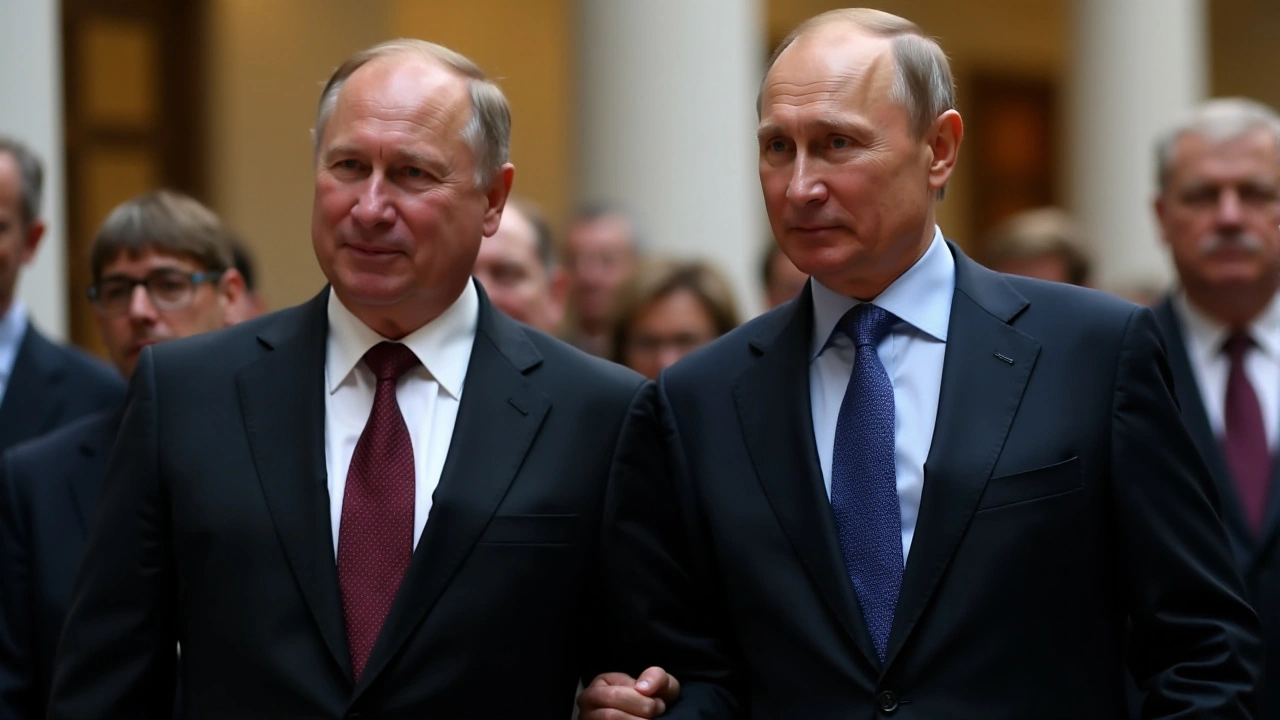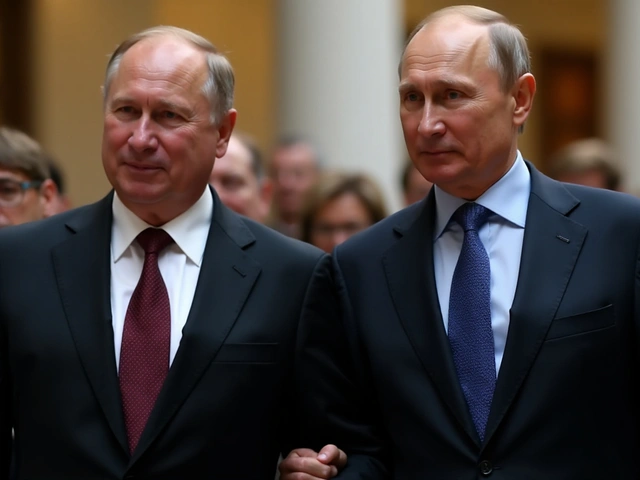UN Launches Crucial Polio Vaccination Campaign in Gaza Amid Conflict
The United Nations has unveiled a pivotal vaccination campaign in Gaza, targeting the resurgence of polio which emerged for the first time in 25 years. With the cooperation of several UN agencies, this campaign marks a significant effort to combat a public health threat that could have severe repercussions, especially for children in the conflict-ridden area. The first confirmed case of polio in a quarter of a century has pushed these agencies to respond swiftly and decisively.
The vaccination initiative aims to cover an impressive 161,030 children, a formidable task given the challenging circumstances of the region. Despite the advances in global health, polio remains a menacing virus without a cure, underlining the importance of these vaccination efforts. Polio can cause lifelong paralysis and even death, primarily affecting children under the age of five. The vaccination drive is being executed in phases, leveraging brief lulls in the conflict to reach the intended population.
The Challenges of Implementing Health Initiatives in Gaza
Implementing such a comprehensive health initiative amid the ongoing conflict in Gaza comes with a plethora of challenges. Continuous military engagements, blockades, and restrictions on movement make the logistics of such a campaign extraordinarily difficult. Yet, the dedication of health workers, buttressed by localized pauses in fighting, has allowed for incremental yet significant progress. These short windows of relative calm are critical, allowing health workers to circulate through communities and administer the vaccines safely.
The importance of vaccinations in preventing polio cannot be overstated. An unvaccinated child is at risk, and a single case can signify outbreak potential, posing a threat not just locally but globally. Nickolay Mladenov, the UN Special Coordinator for the Middle East Peace Process, emphasized the broader implications by stating, "A polio outbreak in Gaza is not merely a regional issue; it's a global health concern that demands international cooperation and swift action."
A Broader Health Initiative
The vaccination drive is part of a more extensive health initiative aimed at addressing various health challenges exacerbated by the persistent conflict. The continuous state of turmoil in Gaza exacerbates existing health issues, strains medical infrastructure, and limits access to essential healthcare services. According to the World Health Organization, the health system in Gaza is on the verge of collapse, making these vaccination campaigns more vital than ever.
Aside from polio, other infectious diseases like measles, typhoid, and even COVID-19 remain threats to the local population. The UN’s broader health initiative encompasses routine immunizations against these diseases, along with efforts to provide adequate medical supplies and healthcare training to local medical personnel.
Community Response and Cooperation
Community engagement and cooperation have played a pivotal role in the vaccination campaign's initial success. Parents have shown remarkable resolve in bringing their children to designated vaccination points, often navigating through highly volatile areas. The role of local leaders and community figures has been instrumental in mobilizing the population and creating awareness about the significance of polio vaccination.
The involvement of local NGOs has further bolstered these efforts. Organizations like Al Mezan and others have been active in supporting the campaign by providing logistical aid and helping to coordinate between the various UN agencies and local health authorities. This collaboration underscores the importance of unity in tackling public health crises affecting regions suffering from both conflict and humanitarian crises.
The Road Ahead
While the vaccination campaign marks a positive step, many hurdles remain. Continuous monitoring, follow-up vaccinations, and comprehensive healthcare measures are necessary to ensure that polio and other infectious diseases are kept at bay. The United Nations, in cooperation with local and international partners, aims to develop sustainable healthcare strategies that can withstand the impacts of ongoing conflict and socioeconomic instability.
Ultimately, the fight against polio in Gaza is but one aspect of a broader struggle to maintain and improve public health in a region beleaguered by years of strife and deprivation. The success of this vaccination drive can serve as a blueprint for other health initiatives, potentially igniting a series of public health victories amidst adversity.
Global Implications and Future Efforts
The global health community closely watches Gaza’s polio vaccination efforts. A successful campaign could offer valuable lessons for similar undertakings in other conflict zones worldwide. It becomes imperative to analyze and learn from both the successes and challenges faced by health workers and agencies involved in this campaign.
The campaign also serves as a potent reminder of the resilience and spirit of people in conflict zones. Despite their dire circumstances, the collective effort to protect the most vulnerable—especially children—demonstrates remarkable human solidarity and commitment.
The continued success of such initiatives will likely require sustained international support, both financially and logistically. As the UN agencies continue their tireless work, the hope is that global bodies, humanitarian organizations, and governments can come together to bolster these efforts, ensuring that polio—and similar public health threats—can be eradicated, even in the most challenging of environments.



Comments
Hope is the silent engine that drives these brave health workers. In conflict zones, a single jab can spark a future of health.
Strategic deployment of immunization assets in Gaza constitutes a critical operational node in the larger geopolitical health architecture. The campaign leverages forward logistics bundles, rapid tricon deployment, and interoperability protocols to outmaneuver hostile interruptions. From a national security perspective, curbing polio emergence nullifies a potential vector for destabilizing narratives. The UN must coordinate with local command structures to ensure corridor integrity, else the whole venture collapses under fire. This isn’t charity; it’s a tactical necessity for regional stability.
Yo, this is awesome! Seeing those nurses hustle through the streets gives me mad respect. Kids deserve a shot at a healthy life, no matter the odds. Keep the momentum going, team!
When we think about health in conflict zones, we remember that every tiny victory is a seed for broader peace. The vaccination drive is more than a medical task; it’s a symbol of hope that bridges fractured communities. Parents stepping forward show resilience that outshines the surrounding turmoil. By tying community leaders into the effort, the UN creates a ripple effect that extends beyond immunization. Small acts of solidarity become the foundation for future collaboration.
Honestly, it’s impressive how quickly the teams organized given the constraints. The coordination with local NGOs really shows the power of collective effort.
Listen up, folks, this is the drama of a lifetime! The UN rolls in with syringes like knights on white horses, but the battlefield? It’s a maze of rubble, sirens, and shattered dreams. Kids are clutching their mothers’ hands, eyes wide, while rockets flash in the distance – it’s like a movie you don’t want to watch but can’t look away from. The health workers, bless them, are dodging shrapnel and still finding the courage to give a tiny poke that could save a life. Every needle is a spark of defiant hope, a rebellion against the virus that loves chaos as much as war does. And let’s not forget the logistical nightmare – trucks jammed, roads blocked, checkpoints demanding bribes – it’s a circus of bureaucracy! Yet, the volunteers march on, chanting "vaccinate!" like a mantra against the absurdity of fate. The community leaders rally the families, shouting slogans that sound like rally cries from a distant protest. Even the local kids, despite the trauma, manage a grin when the nurse says, "You’re getting a superhero shot!" That moment? Pure gold in a sea of gray. The UN’s broader health initiative? It’s a blanket trying to cover a mountain of suffering, but it’s something. Measles, typhoid, COVID – all lurking like silent wolves, waiting to pounce. The campaign’s success will be a beacon, a story told in the streets when the dust finally settles. So, while the world watches, remember: this isn’t just medicine, it’s drama, it’s sacrifice, it’s humanity fighting back with a syringe. And that, my friends, is a narrative worth every broken wall and shattered night.
The effort is solid but the logistics still feel shaky.
While the UN paints this as a humanitarian venture, let’s not ignore the underlying power plays. The initiative conveniently aligns with certain national interests, positioning allies as benefactors and rivals as obstacles. It’s a classic case of health diplomacy masquerading as pure altruism. Still, the immediate goal of protecting children is undeniable, and that should be applauded regardless of the geopolitical chessboard.
Indeed-yes-this perspective-adds depth!; the overlay of politics-doesn’t diminish the brave nurses’ work; it merely contextualizes the arena in which they operate.
Ah, the essence of humanitarianism draped in the cloak of existential reflection! What does it truly mean to inoculate a child when the sky itself is a battlefield? Every dose is a whispered prayer against the deafening roar of artillery. Yet, in those quiet moments-when a mother steadies her trembling hand-the act transcends medicine; it becomes an ode to resilience. The world may watch, may judge, but the children, they embody hope untainted by politics. Their smiles are the only true metric of success, an anthem louder than any anthem of war. So let us not reduce this to mere statistics; let us honor the invisible threads binding healer to healed.
Curious how the local volunteers manage to navigate checkpoints without major delays. Their knowledge of the streets must be invaluable for the campaign’s reach.
🤔 the checkpoint hacks are a whole game 🎲 the volunteers know every back‑alley shortcut 🛤️ it’s like a live‑action puzzle 🤓
Sometimes you feel the weight of history in a simple shot-no fluff, just raw human will.